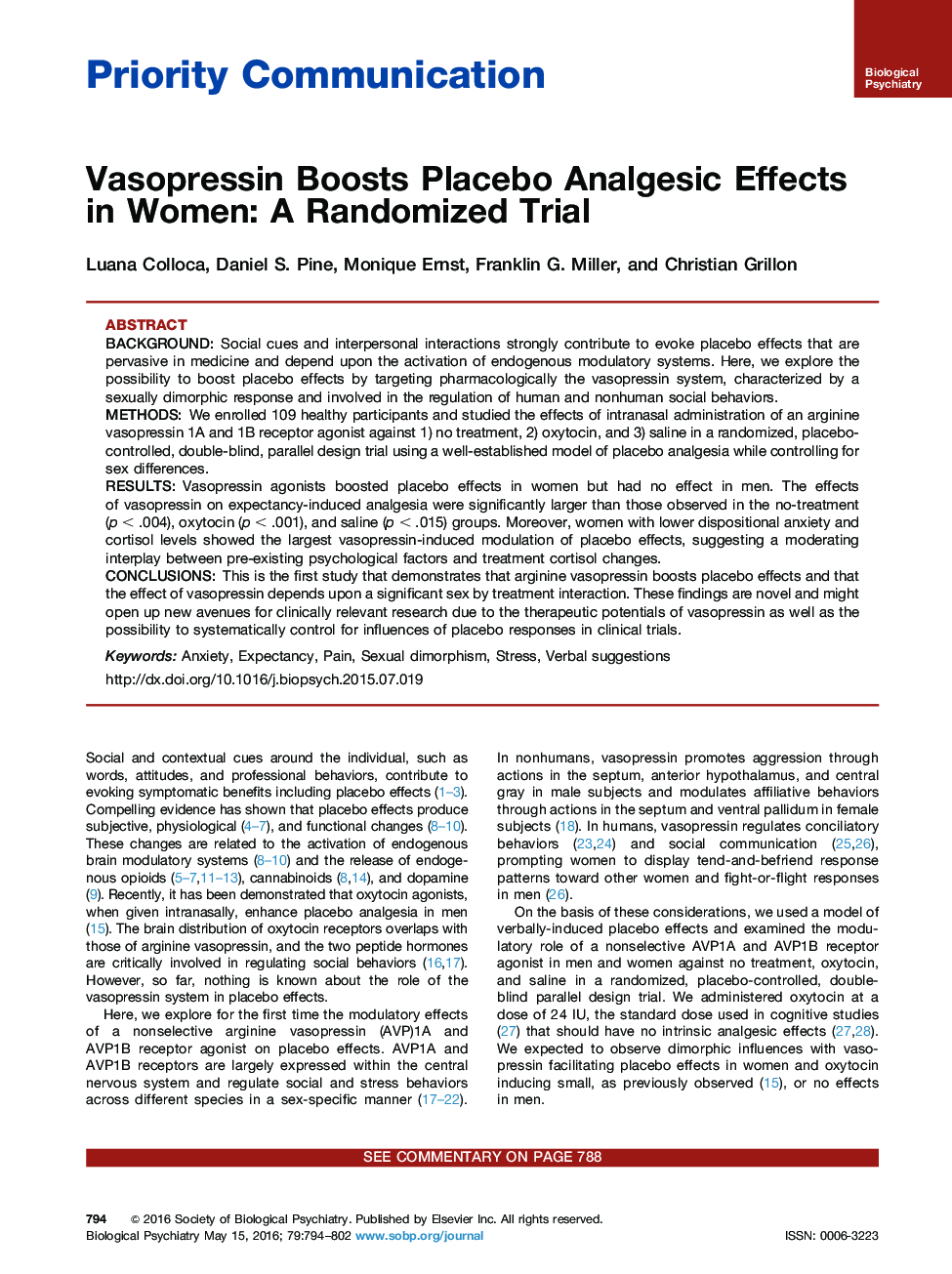| Article ID | Journal | Published Year | Pages | File Type |
|---|---|---|---|---|
| 6226311 | Biological Psychiatry | 2016 | 9 Pages |
BackgroundSocial cues and interpersonal interactions strongly contribute to evoke placebo effects that are pervasive in medicine and depend upon the activation of endogenous modulatory systems. Here, we explore the possibility to boost placebo effects by targeting pharmacologically the vasopressin system, characterized by a sexually dimorphic response and involved in the regulation of human and nonhuman social behaviors.MethodsWe enrolled 109 healthy participants and studied the effects of intranasal administration of an arginine vasopressin 1A and 1B receptor agonist against 1) no treatment, 2) oxytocin, and 3) saline in a randomized, placebo-controlled, double-blind, parallel design trial using a well-established model of placebo analgesia while controlling for sex differences.ResultsVasopressin agonists boosted placebo effects in women but had no effect in men. The effects of vasopressin on expectancy-induced analgesia were significantly larger than those observed in the no-treatment (p < .004), oxytocin (p < .001), and saline (p < .015) groups. Moreover, women with lower dispositional anxiety and cortisol levels showed the largest vasopressin-induced modulation of placebo effects, suggesting a moderating interplay between pre-existing psychological factors and treatment cortisol changes.ConclusionsThis is the first study that demonstrates that arginine vasopressin boosts placebo effects and that the effect of vasopressin depends upon a significant sex by treatment interaction. These findings are novel and might open up new avenues for clinically relevant research due to the therapeutic potentials of vasopressin as well as the possibility to systematically control for influences of placebo responses in clinical trials.
